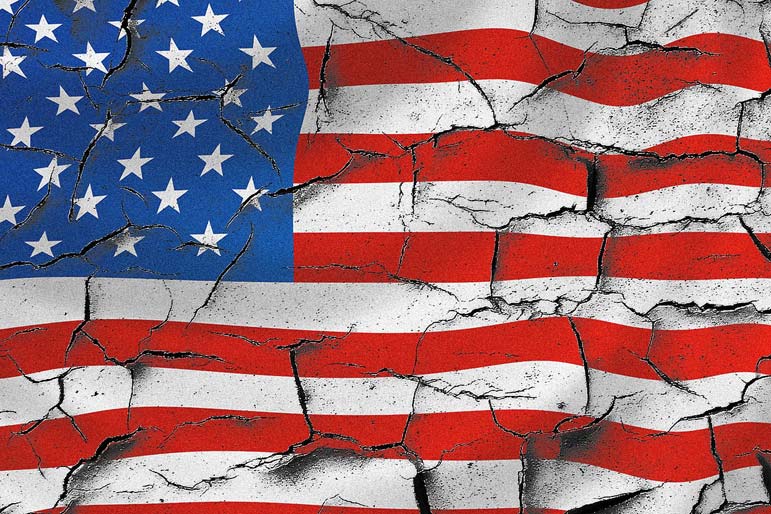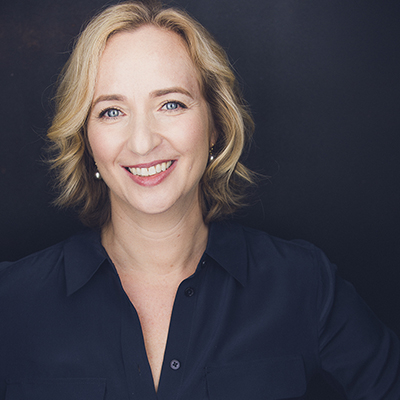
The political realignment has come for economics. At least since the days of
Now, in economics as in politics, it is no longer left versus right; it is moderates versus populists. The question isn't so much the optimal size of government in a global market-based economy, it is whether the economy is positive or zero-sum and how it entrenches power.
The result is unlikely allies and enemies. The horseshoe theory of politics holds that extreme left and right partisans agree more with each other than they do with the centrists in their party. That theory now also applies to economics.
A decade and a half ago, economists and policy wonks were divided on things that in retrospect seem quite small — the structure of the Affordable Care Act, for example. More and more lately, I struggle to find disagreement with center-left economics pundits who used to make me shake my head.
It could be that we are all moderating with age. But I don't think so. It's that the conversation has changed. The debate is increasingly about questions we moderates have long seen as resolved, such as whether price controls work (no), globalization is a good thing (yes), or growth should be the primary objective (of course).
These questions are being revisited because populists have become a much bigger and more influential force in
It's not just me.
The more populist wing of the Democratic Party rejects this approach, because it sees the real problem as power. It has a more zero-sum view of the economy, in which the powerful (usually corporations and the rich) take most of the limited resources everyone should be entitled to.
I am closer to abundance liberals (let's make a bigger economic pie) than I am to populist liberals (let's make sure the pie slices are exactly even). I also support getting rid of wasteful regulations and favors to special-interest groups. The difference is that I think these barriers need to be removed to empower the private sector, not the government, to drive growth. This is not a trivial difference, and someday it will probably tear our fragile alliance apart. But for now, compared to the alternative, it feels semantic.
Conservatives are facing a divide similar to the one Klein describes among liberals. The populist strain of the right also sees the world as zero-sum and condemns the concentration of power — not of the rich, but among foreigners and institutions: universities, technology firms, government bureaucracies, international agencies, and so on.
President Donald Trump's administration reflects this division. Its economic team includes representatives from the more traditional pro-growth wing of the
This realignment will shape America's economic discourse and policies for the foreseeable future. Rather than a right/left divide on the role of government, the main debate going forward will be between centrists and populists.
One side is united by our love for a more efficient tax code and our desire to reduce regulations that favor special-interest groups, as well as our enthusiasm for growth. The other is obsessed with fighting powerful forces they say are preventing people from thriving in a world of increasingly scarce resources.
It is not clear to me how all this ends. If the post-
Another possibility is that both parties go populist, leaving us disaffected centrists to huddle together in the political and policy wilderness. Zohran Mamdani's victory in last week's
What is clear is that populists are gaining more influence for a reason, and it is important to engage them and their ideas. We centrists had a good run. Now we need to work harder to understand why fewer people find our arguments persuasive.
(COMMENT, BELOW)
Allison Schrager, a Bloomberg columnist, is a senior fellow at the Manhattan Institute and a contributing editor of City Journal.
Previously:
• A college degree is no longer a risk-free investment
• Break up Columbia? Maybe, and the rest of the Ivy League, too
• Even Dems might like MAGA accounts
• Reality Check about possibile volatility in trade war
• Is this really how American exceptionalism ends?
• The free-market conservative is a vanishing breed
• Shareholder capitalism is back
• Europe's risk aversion comes with consequences
• The Oxford curriculum that American universities need
• Private equity won't diversify your portfolio
• The era of declining interest rates may have come to an end, and many investors don't seem to realize it
• This one weird trick could save the U.S. economy
• The Fed's damage to the housing market may last years
• The future of unions looks very different
• To bring back the office, bring back lunch
• Does it really matter who gets into Harvard?
• Our pensions shouldn't be used to juice the economy
• A soft landing won't mean the economy is safe
• The 30-year mortgage is saving the U.S. economy … or is it?
• The one true secret to successful investing
• Less work, more burn-out
• When did risk become a bad word in the U.S.?
• AI-proofing your career starts in college
• Biden has to learn the same lesson as SVB
• Say it with Rubio: Changing clocks is stupid
• Sure, we'll return to the office in 2023 but not to stores
• How to manage the biggest risk of all: Uncertainty
• If you think U.S. pensions are safe, just wait
• Harry and Meghan and the perils of superstar culture
• Norman Rockwell's economy is never coming back
• Burned by crypto? Don't learn the wrong lesson
• Quiet Quitters are looking in the wrong place for meaningful work
• America's MBAs are the latest skeptics of capitalism
• Generation Z is getting a harsh lesson in stock risk
• The biggest threat to the U.S. economy is policymakers
• Buck up, boomers. You're still better off than your parents
• How to manage the biggest risk of all: uncertainty
• Startup boom is the kind of risk-taking Americans need
• Gen Z is too compliant to achieve greatness
• A bigger child tax credit isn't the poverty solution we need
• Finding your power in a higher-priced world
• The Biden administration's plans to double the tax rate on capital gains will prove costly to all Americans, not just the wealthy
• WARNING: Feel Good Now --- Pay Later: Stimulus is crammed with goodies but makes no economic sense
• The 'Stakeholder' Fallacy: Joe Biden's vision of capitalism is a recipe for failure


 Contact The Editor
Contact The Editor
 Articles By This Author
Articles By This Author